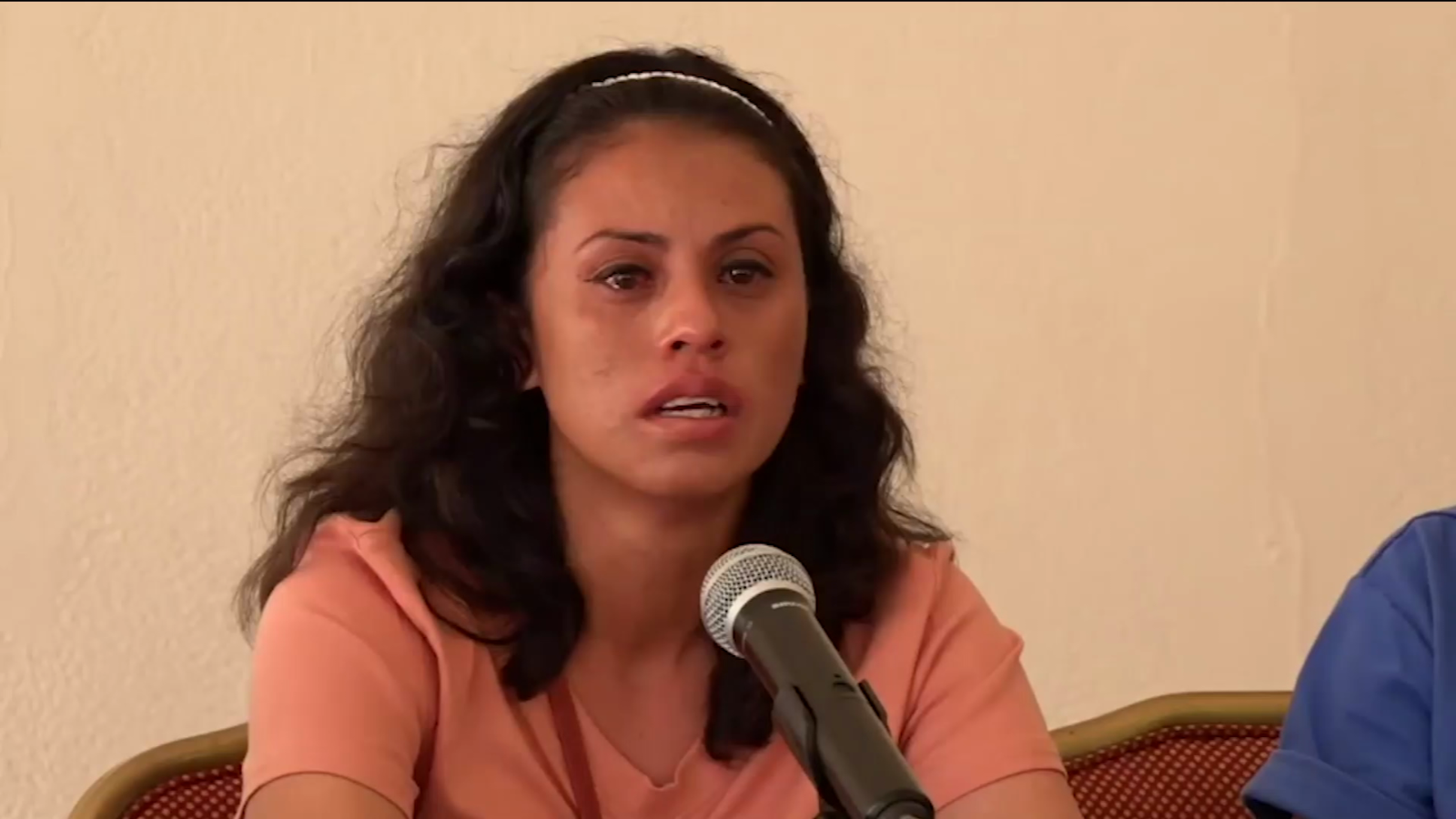The arrest of Sara Rogel in 2012 after being accused of murder after losing a pregnancy put the eyes of the world in El Salvador, one of the countries with the strictest legislation on abortions.
The case began when the hospital where the young woman, then 22 years old, was treated urgently, denounced her for allegedly having performed an abortion. The investigation by the Public Ministry confirmed that, after giving birth, Rogel allegedly hit the newborn on the head.
According to her lawyers, Rogel lost the pregnancy after suffering a fall at home, which caused a hemorrhage. She has just been released on parole after serving nearly 10 years in prison.
Despite the accusation of homicide by the Prosecutor’s Office, the case made Rogel a symbol of the rejection of the strict anti-abortion legislation that governs the country.
“She was pregnant and awaiting pregnancy, she fell, she had a strong hemorrhage. They took her to the Cojutepeque hospital where they denounced her for having committed an abortion, and days later they processed her and sentenced her to 30 years in prison,” Morena Herrera, from the Citizen Group for the Decriminalization of Abortion, told Citizen Free Press.
Abortion in El Salvador
El Salvador is one of the four countries in the world that prohibits abortion in all kinds of circumstances, without allowing exceptions even in case of rape or danger of life to the mother. The law establishes severe penalties of up to 40 years in prison for those who practice it.
Rogel was sentenced to 30 years in prison for aggravated murder. But the sentence was later reduced to 10 years and she was released on probation on Tuesday after spending almost a decade in detention.
“It is not easy to be in a prison, so many years away from your family. I know that I am not a danger to society and I know that my colleagues who have stayed there are not dangers to society either,” said Rogel in her first statements after being released.
The young woman will complete the 10-year sentence in October. Until then, according to the ruling, you must periodically appear in court to sign, you may not ingest alcoholic beverages or drugs, interact with gang members or commit crimes.
In addition, she must attend orientation talks to help her adjust to her new life in freedom after leaving the Minor Detention Center for Women in Zacatecoluca, about 68 kilometers from San Salvador.
A court decided her release a week ago, but she had to remain locked up until the prosecution’s deadline to appeal the measure expired.
The look at arbitrary detentions
The case of Sara Rogel put the eyes of the world, and especially of Human Rights organizations, on El Salvador.
In March 2020, the UN Working Group on Arbitrary Detention urged the authorities of El Salvador to “adopt urgent structural reforms” with the aim of curbing arbitrary detentions of women in vulnerable conditions.
The warrant was based on the case of three women, among whom was Sara Rogel, detained and sentenced to long prison terms after having suffered “obstetric emergencies or spontaneous abortions.”
#ElSalvador – We welcome the decision of the Court of Penitentiary Surveillance and Execution of Sentence #Cojutepeque, to grant parole to Sara Rogel, complying with the opinion of the Working Group #HIM-HER-IT on Arbitrary Detention and then adopt reparation measures pic.twitter.com/0eC63hPuMR
– OACNUDH (@OACNUDH) June 8, 2021
After the conditional release of Rogel was known on Tuesday, the Office of the United Nations High Commissioner for Human Rights “greeted” the Court’s decision from its Twitter account and called on the Salvadoran State to continue complying with the recommendations of protection mechanisms of UN Human Rights.
According to Paula Ávila-Guillén, executive director of the Center for Women’s Equality, there are still 17 women “unjustly detained” in El Salvador after having suffered obstetric emergencies.
“Each of these cases shows the insidious consequences of the absolute criminalization of abortion, resulting in a state that persecutes and imprisons women at the time when they most need access to health and protection,” she adds.

